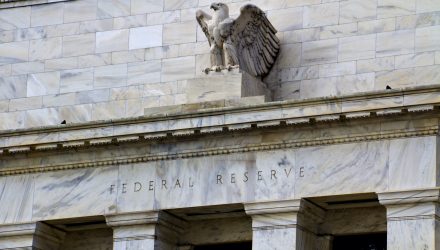Most stock ETFs ended last week lower despite Federal Reserve Chairman Powell reasserting his commitment to an ‘all-in’ approach to the recovery, stating in a commentary piece for the Wall Street Journal that he would maintain loose monetary policy. Meanwhile, at least one inverse bond ETF responded positively.
Powell noted that the U.S. economy was ‘much improved’ economy, crediting aggressive policy with making the outlook ahead brighter.
He then added that the economy is still far from fully rehabilitated, and that the central bank would offer bolstering as necessary until the process is finished.
“But the recovery is far from complete, so at the Fed we will continue to provide the economy with the support that it needs for as long as it takes,” he wrote. “I truly believe that we will emerge from this crisis stronger and better, as we have done so often before.”
Markets, including stock index ETFs rallied after the press release from the Fed on Wednesday, but all of those moves were quickly undone, as stocks quickly plummeted to fresh lows, snatching back the week of gains to finish lower Friday and for the week.
Major stock ETFs, the SPDR Dow Jones Industrial Average ETF (DIA) and SPDR S&P 500 ETF Trust (SPY). The Invesco QQQ Trust (QQQ), which eked out gains thanks to the Nasdaq Composite, managed to finish up 0.76% on Friday.
The central bank on Friday also opted not to extend a rule expiring at the end of the month that eased the supplementary leverage ratio for banks during the pandemic, thereby permitting banks to maintain less capital against Treasuries and other holdings. It was a strategy implemented to mitigate the bond market during the crisis and encourage banks to lend.
“This is a disappointment to investors that the Fed decided not to extend it,” said Jimmy Chang, chief investment officer at Rockefeller Global Family Office. “There was a lot of expectation, at least a few weeks ago, that the Fed would extend to relieve SLR for the big banks given the need to absorb so much Treasury issuance.”
“The scope of the crisis required an all-in government response,” Powell wrote. “Congress provided its largest economic recovery package of the postwar era. At the Fed, we used all the tools at our disposal to prevent a financial meltdown and ensure that credit could continue to flow to households and businesses.”
While bond ETFs and stock ETFs struggled, as bond rates surged this week, the ProShares Short 7-10 Year Treasury (TBX), an inverse bond ETF, managed to score minor gains.
For more market trends, visit ETF Trends.
